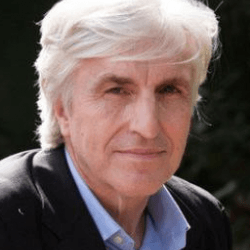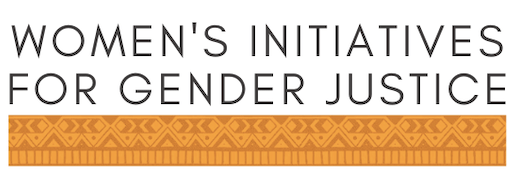Gabrielle McIntyre – Australia (Chair)
 Gabrielle McIntyre is an international legal practitioner, jurist and the Chef de Cabinet and Principal Legal Advisor to the President of the International Residual Mechanism for Criminal Tribunals (MICT), the successor institution to the International Criminal Tribunal for the former Yugoslavia (ICTY) and of the International Criminal Tribunal for Rwanda (ICTR). She serves in this role at both branches of the Mechanism in Arusha, Tanzania, and The Hague, The Netherlands. For her Wikipedia page click here.
Gabrielle McIntyre is an international legal practitioner, jurist and the Chef de Cabinet and Principal Legal Advisor to the President of the International Residual Mechanism for Criminal Tribunals (MICT), the successor institution to the International Criminal Tribunal for the former Yugoslavia (ICTY) and of the International Criminal Tribunal for Rwanda (ICTR). She serves in this role at both branches of the Mechanism in Arusha, Tanzania, and The Hague, The Netherlands. For her Wikipedia page click here.
Ms McIntyre is recognised and widely respected as an expert in international legal practice, international humanitarian law, international criminal law and human rights law and has served as the principal judicial, legal, and policy advisor to four successive Presidents of the ICTY and has worked closely and collaboratively with the Judges of the ICTY and ICTR Appeals Chambers for close to two decades. Ms McIntyre has managed legal proceedings for judges of the ICTY at all stages of proceedings, including pre-trial, trial and appeal, and has extensive experience with international court practice and common and civil law procedural rules. During her long tenure as Chef de Cabinet at the ICTY, she drafted, reviewed or revised almost all major judgments and decisions issued by the ICTY and ICTR Appeals Chambers. She has also served as acting Head of Chambers for the ICTY and as a member of the Disciplinary Panel adjudicating claims of misconduct on the part of Counsel appearing before the ICTY. She currently serves as the Focal Point for Women and the Focal Point for the Prevention of Sexual Exploitation and Sexual Abuse for the Hague branch of the Mechanism.
Ms McIntyre has been responsible for a wide range of initiatives aimed at facilitating a greater understanding of international criminal law and the ICTY’s work and legacy, including a series of prominent conferences held in The Hague and countries of the former Yugoslavia. She initiated and served as the ICTY project manager for the War Crimes Justice Project and was a primary drafter and editor of the ICTY Manual on Developed Practices. She was also a member of the panel of experts who produced a report on the International Criminal Court in December 2014 designed “to identify, from the point of view primarily of practitioners, the principal problems of effectiveness affecting the work of the Court with a view to offer practical and realistic solutions intended to improve the quality, cost and expeditiousness of ICC proceedings”.
Ms McIntyre has conducted numerous training sessions on justice and war crimes-related issues for judges and other legal professionals in Sierra Leone, Cambodia, the former Yugoslavia and elsewhere, and has authored a number of articles and chapters addressing topics in human rights and international criminal law.
Ms McIntyre has been nominated numerous times for international judicial positions and stood for election to be a judge at the ICTY in 2013.
She has an Honours Degree in Law from the University of Adelaide (First Class) South Australia, and a Master’s Degree in International Law from the University of Cambridge (First Class), England. She has previously served as an associate in the Supreme Court of South Australia and as an advisor in the South Australian Attorney-General’s Office.
Melinda Reed – United States (Executive Director)
 Melinda Reed is the Executive Director of the Women’s Initiatives for Gender Justice.
Melinda Reed is the Executive Director of the Women’s Initiatives for Gender Justice.
Ms Reed has over 15 years of international relief and development experience. Most recently, Ms Reed spent over four years as the Executive Director of The Friendship Center, a local domestic and sexual violence organisation in Montana. During her time at The Friendship Center, Ms Reed helped to establish Montana’s first High Risk Offender Task Force and worked with partners to improve the community’s response to domestic and sexual violence.
Ms Reed has lead emergency response teams in conflict zones and natural disasters and managed programs in Central Asia, the Caucasus and the Middle East. She has worked on projects and programmes focused on conflict mitigation, livelihoods development, psychosocial support, shelter, and logistics. Ms Reed’s experience includes both short term emergency deployments and long term project assignments in Uzbekistan, Azerbaijan, Georgia, Lebanon and Iraq.
Ms Reed holds a Masters degree in International Affairs with a focus on Human Rights from Columbia University.
Judicael Elidje – Côte d’Ivoire (Treasurer)

On 30 November, 2016, Judicael Elidje assumed his new role as the Deputy Representative of UNFPA in the Chad Country Office. Previously he was the Team Leader of the Humanitarian and Fragile Context Unit at the United Nations Population Fund’s (UNFPA) West and Central Africa Regional Office in Dakar, Senegal. As Regional Specialist for Humanitarian Response and Preparedness, his role was to provide support to 23 countries especially the most affected by crises such as the Central African Republic, Nigeria, countries in the Sahel belt. He was responsible for strengthening technical and programmatic engagement in humanitarian efforts, including increasing resources and capacity building, build partnerships in support of sexual and reproductive health, gender, and population and development in emergency and humanitarian settings.
Mr Elidje is a public health and monitoring and evaluation professional with 12 years of national and international experience in leading and coordinating successful development and humanitarian programmes. His work has focused on issues including gender-based violence, HIV/AIDS prevention among adolescents and youth, maternal and infant healthcare, and family planning. Mr Elidje has held positions in five countries in Europe and Africa and his experience includes strategic planning, capacity development for staff and partners, research activities, information management systems, result-based monitoring and evaluation, building partnerships, resource mobilization, evidence-based advocacy and result-oriented budget management.
From 2011-2013, Mr Elidje served as a Monitoring and Evaluation Advisor for the International Criminal Court’s Trust Fund for Victims (TFV) in relation to the TFV’s 25 assistance programmes in Uganda and the Democratic Republic of the Congo (DRC). He has also been an Assistant Lecturer in the School of Public Health at the Université libre de Bruxelles.
Between 2004-2011, Mr Elidje worked with UNFPA in Kinshasa, DRC in several capacities, including as Team Leader in the Monitoring and Evaluation and Humanitarian Affairs Units; Programme Specialist in Monitoring and Evaluation, Emergency and Sexual and Gender-based Violence (SGBV); and Associate Programme Officer in Monitoring and Evaluation and Adolescent Sexual and Reproductive Health.
Mr Elidje is a PhD candidate at Walden University in Public Policy and Administration with a specialisation in health policy, public policy, public administration, leadership and organisation change and ethics (expected 2017). He holds Master’s degrees in Public Health, specialising in Biostatistics and Epidemiology (DEA) and Health and Development (DES) from the Université libre de Bruxelles as well as a Master in Statistics (Engineer) from ENSEA in Abidjan, Côte d’Ivoire.
Elizabeth Farr – United States (Secretary)
Elizabeth Farr has been a practicing attorney in the United States for over 27 years with a distinguished history of policy development and leadership in, among other things, the prosecution of a wide range of crimes, including gender based crimes committed in the context of war, genocide, and crimes against humanity.
From 2006-2010, Ms Farr served at the White House as part of the National Security Council staff focusing on the development of national level policies in the areas of war crimes, human trafficking, counterterrorism, transnational organized crime, and domestic disaster response. She has been a legal advisor to leadership in the U.S. Department of Defense, the U.S. Department of Justice, and the French, Rwandan, and United Arab Emirates Ministries of Justice. Ms Farr served in several U.S. Embassies on three continents for over a decade.
From 1996-1998, Ms Farr was a prosecutor at the International Criminal Tribunal for Rwanda (ICTR) where she directed the investigation of 15 war criminals with leadership roles in the 1994 genocide. In this capacity, she developed investigative and prosecution strategy that led to the trial and conviction of two war criminals responsible for the deaths of 250,000 civilians in the city of Kibuye, Karongi Province. She also prepared and presented an indictment against Pastor Nktakirutimana, the first clergy member to ever be charged with and convicted for genocide and crimes against humanity. Prior to his trial, Ms Farr was instrumental in securing his extradition from the United States to the ICTR. Ms Farr established and served as Chief of the Sexual Violence Investigations Unit for the ICTR. As a United States Federal prosecutor, her substantial focus was on victim-related crimes. She was the Chief of the US Attorney’s Violent Crime Task Force.
Throughout her career, Ms Farr has received numerous awards for exceptional service. She holds a Master’s Degree in the Law of the European Union from the Institut Européen des Hautes Études Internationales, a Doctorate of Jurisprudence from the University of Tennessee, and is a fluent French speaker. Ms Farr lives in Washington, DC with her husband and cherished bulldog.
David Tolbert – United States (Member)

© La Vanguardia
David Tolbert is Ford Fellow/Visiting Scholar, Duke University, Sanford School of Policy. He was President, International Center of Transitional Justice, 2010 – 2018, and a former UN Assistant-Secretary-General. Tolbert served as Deputy Chief Prosecutor, Deputy Registrar and Chef de Cabinet to the President at the Yugoslavia Tribunal. He also served as Registrar, Special Tribunal for Lebanon, Special Expert to the UN Secretary-General on the Khmer Rouge Trials, Executive Director, ABA-CEELI and Chief, General Legal Division, UNRWA.
The Board members do not receive any remuneration or compensation for their fulfilment of their function. The Board members only receive a reimbursement for their expenses. The remuneration of the Executive Director is set and approved by the Board.
